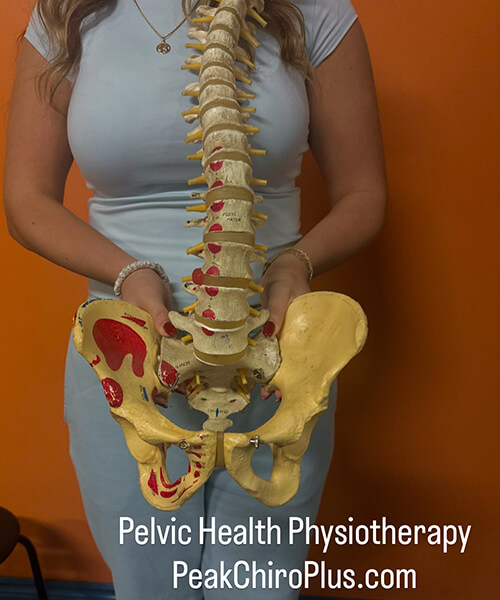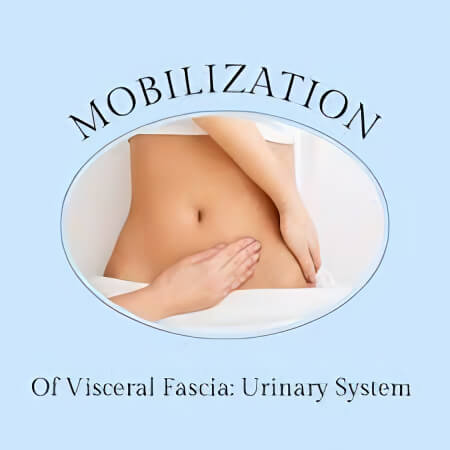Pediatric Pelvic Health Physiotherapy in Vaughan
What is Pediatric Pelvic Health Physiotherapy and Why is it Important?
Pediatric pelvic physiotherapy is a specialized service focusing on the unique needs of children who experience pelvic health concerns such as constipation, leaking, and bedwetting.
The pelvic floor, a complex network of muscles, ligaments, and connective tissues, plays a pivotal role in maintaining bladder and bowel control, sexual function, and core stability.
Issues related to the pelvic floor can affect children in various ways, impacting their physical, emotional, and social development.
NEW PATIENTS

Common Pediatric Pelvic Floor Conditions
Enuresis (Bedwetting)
Bedwetting may occur with or without other lower urinary tract symptoms such as daytime incontinence, urgency, holding maneuvers, constipation, etc. Nighttime wetting beyond the age of 5 can be challenging for both children and parents. Pediatric pelvic health physiotherapy can help you understand the root cause of the issue and provide effective strategies to help your child gain better bladder control.
Encopresis (Fecal Incontinence)
Encopresis is when a child leaks stool. Most often this occurs in children who are constipated as liquid stool moves past impacted stool in the rectum. Management strategies include treatment of constipation and pelvic floor physiotherapy to address toileting habits and optimize pelvic floor muscle function.
Constipation
This is characterized by infrequent bowel movements and/or the presence of hard, dry stool. Children may experience stomach pain, pain with a bowel movement, or stool leakage (due to a backup of stool in the rectum). If bowel movements are painful children may become fearful and develop holding patterns to avoid it, which can worsen constipation. Pelvic floor physiotherapy is beneficial in addressing toileting habits including potty posture and optimizing pelvic floor muscle function to ensure proper evacuation techniques. Your child’s doctor may also prescribe a laxative to help treat constipation.
Dysfunctional Voiding
Defined as an interrupted or inconsistent urine stream due to the contraction of the urethral sphincter and pelvic floor during voiding. As we are voiding our pelvic floor needs to fully relax to allow urine out of our bladder. Treatment of dysfunctional voiding includes pelvic floor training to improve relaxation and motor control during a void. This is important to ensure adequate bladder emptying to prevent post-void residuals which can contribute to urinary tract infections.
Urinary Incontinence
This may include leakage associated with the urge to pee (urge incontinence), and/or in response to a jump, sneeze, cough, or laugh (stress incontinence). Giggle incontinence is the complete emptying of the bladder associated with laughing and is more common in prepubescent girls. Treatment of incontinence includes education and behavioural modifications surrounding voiding schedule, bladder irritants and fluid intake, constipation management, and pelvic floor muscle training.
Underactive or Overactive Bladder
Overactive bladder is an increase in urinary urgency, frequency, and nocturia (waking at night to void) with or without incontinence. Underactive bladder is a reduction in urinary frequency, or an increase due to the presence of a post-void residual and may involve straining to empty the bladder. Treatment includes education and behavioural modifications surrounding voiding schedule, bladder irritants and fluid intake, constipation management, and pelvic floor muscle training. Depending on the case, medication may also be recommended by your child’s doctor.
Voiding Postponement
Voiding postponement is characterized by low voiding frequency, the feeling of urgency due to a full bladder, and possible leakage due to a full bladder, all in the presence of habitual holding maneuvers. Treatment includes standard urotherapy such as voiding schedule, bladder irritants, and fluid intake. Depending on the case, support for behavioural disturbances may be beneficial.
Bowel Bladder Dysfunction
This includes the presence of bowel and bladder symptoms together, such as constipation, overactive bladder and/or incontinence. Constipation management is the top priority in treating bowel bladder dysfunction. Other treatments include education and behavioural modifications surrounding voiding schedule, bladder irritants and fluid intake, and pelvic floor muscle training.
Pelvic Pain
There are various conditions or diagnoses that may contribute to pelvic pain. Some common causes include tension in the pelvic floor, constipation, or urinary tract infections. Pelvic floor physiotherapy can help with down training and relaxation of the pelvic floor, education on bladder function and its relationship to the pelvic floor muscles, bladder health and irritants, bladder retraining, and constipation management. If your child is experiencing pain with urination, it is important to consult their doctor to assess for a urinary tract infection.

When to Seek Pediatric Pelvic Floor Physiotherapy
If your child is 5 years of age or older and experiencing any symptoms of the above-listed conditions, active physiotherapy management is recommended. If between 2-5 years old and you are struggling with potty training or your child is symptomatic and you are looking for guidance and support, you may also seek care.
Benefits of Pediatric Pelvic Health Physiotherapy
- Improved Continence and Bowel Function
Pediatric pelvic floor physiotherapy plays a crucial role in improving continence and bowel function in children. Through targeted exercises and strategies, children can develop better control over their pelvic floor muscles which aids in managing and preventing issues like bedwetting (enuresis), urgency, incontinence, and difficulties with bowel movements. These therapies focus on strengthening weakened muscles, teaching relaxation techniques for overactive muscles, and providing guidance on proper bladder and bowel habits. The goal is to optimize muscle coordination, leading to better control and increased confidence for the child.
- Pain Relief
Pediatric pelvic pain can be distressing and debilitating for children. Pelvic health physiotherapy employs specialized techniques to address and manage pelvic pain effectively. Treatment plans may include targeted exercises, manual therapy, relaxation techniques, and sometimes biofeedback, to reduce pelvic pain and discomfort and improve overall well-being, allowing children to engage more comfortably in daily activities.
- Enhanced Quality of Life
Pediatric pelvic floor physiotherapy significantly enhances the overall quality of life for children facing pelvic health issues. By addressing these concerns early and effectively, children experience reduced stress, improved self-esteem, and a greater sense of independence. Gaining control over bladder and bowel function, managing pain, and feeling more confident in social settings contribute to a better quality of life for children and their families. The ability to engage in regular activities without fear of accidents or discomfort leads to increased participation in school, social interactions, and recreational activities. Ultimately, this empowers children to enjoy a more fulfilling childhood.
- Prevention of Long-Term Issues
Early intervention through pediatric pelvic floor physiotherapy can prevent long-term pelvic health issues. Addressing concerns during childhood can mitigate the risk of persistent problems in adulthood. By teaching children proper bladder and bowel habits, promoting muscle coordination and strength, and correcting any imbalances or dysfunction, physiotherapy helps set a foundation for lifelong pelvic health.
Schedule Your Appointment
Help your child regain comfort, confidence, and control with compassionate, specialized care. The team at Peak Chiro Plus is here to support your family with personalized pediatric pelvic health physiotherapy tailored to your child’s unique needs.
Reach out today to schedule your appointment and take the first step toward better pelvic health and peace of mind.
CONTACT US
Pediatric Pelvic Health Physiotherapy Vaughan ON | 905-832-9596



